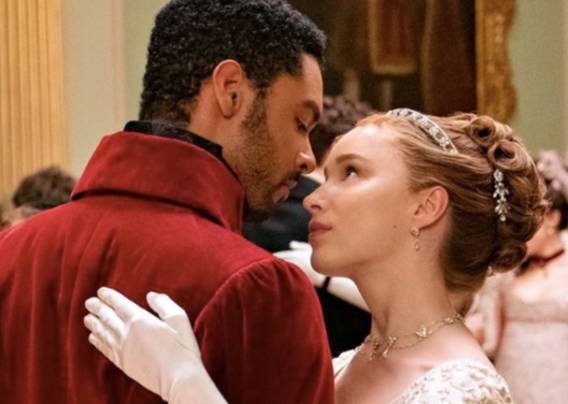History for Everyone
We went to see SIX on Broadway recently (whole other story) which is about the six wives of Henry VIII. The point of the show is that the history of the King is really the herstory of the Queens, and that they are the reason why he is famous. Also, in the production, the actors cast in the roles of the six Queens are not ethnically accurate to the original wives. This is in line with the same trend as seen in Hamilton. “Color blind casting” is what some people are calling it.
Now you could argue that if the goal is to create cognitive dissonance by casting ethnic mismatches (“an African-American George Washington??!”) then the casting is not actually “color blind.” If Hamilton were truly cast “color-blind,” then there would be a white George Washington in one production and a black one in another. But that’s not how it’s being done in this new wave of theatre. A more accurate term which is also currently in use is “nontraditional casting,” to reflect a conscious choice of casting outside of ethnic expectations to make a point, or impact the overall piece.

You may have seen this kind of casting in some recent streaming TV shows like Bridgerton on Netflix or The Great on Hulu. The former is set in regency England (Jane Austen’s time period) and the latter is another version of the often told story of the rise of Catherine the Great. Both are completely fictional, and quite enjoyable and well done shows. But there’s something incongruous, absurd even, about the casting, in the sense that race relations in that time period were so much different than they are today, and therefore it makes no sense for a black guy, however suave and debonair, to be a Duke in a Russian or English court in the late 1700s.
I’ll just put it bluntly: in that time period, black people were not in high positions of power in Europe, and except for rare instances noted in history, not engaged in courtly intrigue with them, as their peers. In portraying black and white people together as equals, something which makes sense in a story set in modern times, you might say that these shows are erasing history – trying to cover up or forget the shame of the racial injustices of the past. These shows are creating a fictional version of history that ignores a glaring aspect of it.
Alternately, you might say that, since these shows are simply recreating history, then by incorporating modern values about race into the narrative they are promoting inclusivity and empowering previously marginalized people. Some of these old history stories are rousing stuff, and why shouldn’t black people get to play these amazing roles? Is it so different from a woman playing Hamlet, as happened long ago? George Washington is a towering figure of American myth – why should white people get to own him forever?
I fret about the erasure of history as I write this, but then I have to wonder: is it so bad if future generations forget about the racial discrimination of the past, so long as it never returns? Maybe it’s possible to take the old adage about forgetting history too literally.
Let’s say some young person in the future is watching Bridgerton and is completely unaware of the impossibility of black and white people all dancing together at an upper class ball in regency England, unaware that back then the races did not mix like that, or be treated as equals. It’s not like we don’t routinely botch history in our many recreations of other eras. If someone then made them aware that black people were treated poorly, as a lower class of human, in that time period, their reaction might be an incredulous, “Really??! How could people have tolerated that? That is insane!” Maybe we could achieve a future where racial discrimination seems absurd and an obscure fact that needs to be dug up in old history books.
The problem, though, is that racial discrimination is still a thing of the present. So a show which pretends that discrimination didn’t exist in the past might lure us into forgetting that it exists today. It might help us ignore a glaring aspect not of history but of our own time. It might just be a distraction on TV, posing as proof that we have finally ended racial discrimination.
We need our distractions, so maybe the best thing is to think of these shows as escapist entertainment, fun and playful. Meanwhile, we continue to seriously look at racial issues in our society. We have nontraditional casting on the one hand, and critical race theory on the other, both tools in our struggle to repair race relations. Wouldn’t it be something, if some day, a mixed race cast in a period piece was not a politically charged choice, but merely a curious anachronism.